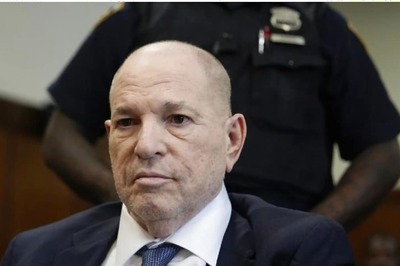
views
The Tortoise and Achilles both stood at the starting point for a race. The puny tortoise looked at Achilles, the mighty and powerful Greek warrior, and asked, "Do you think you can give me a 10-metre lead; it would make the race interesting, don't you think?"
Achilles smiled and agreed. After all, how long could it possibly take him to race through 10 metres and overtake the tiny tortoise? According to Zeno, who lived in the city of Alea 2,500 years ago, this was a bad move by Achilles.
This mathematical puzzle called Zeno’s Paradox says that, assuming their speeds didn’t vary (though one ran fast and the other slow), by the time Achilles covered 10 metres, the tortoise would have moved two metres further. By the time Achilles covered those two metres, the tortoise would have moved a little ahead. Thus, whenever Achilles reaches somewhere the tortoise has been, he still has further to go. Therefore, because there are an infinite number of points Achilles must reach where the tortoise has already been, he can never overtake the tortoise.
Zeno might well have been talking about logistics rivals DHL and Federal Express (FedEx). Across the world, the $39-billion FedEx is clearly Achilles, the sector leader. But in India, even after running for 15 years, it hasn’t been able to close the gap with DHL.
DHL’s Indian operations closed 2010 with Rs 823 crore in revenues and a profit of Rs 31 crore. FedEx’s income statements for its Indian operations are not readily available (only the balance sheet is), but our estimates (calculated using earnings per share and changes in balance sheet) show that it incurred losses of Rs 4 crore for 2010. Forbes India sent this figure to FedEx for clarification. In its reply, FedEx did not confirm or deny these numbers. It added that the company does not report numbers on a country or regional basis.
Why has FedEx fallen behind and can it catch up? One key reason is that FedEx had never taken the India opportunity seriously and was caught napping as the Indian logistics market exploded. According to a study by Frost and Sullivan, the Indian logistics market is pegged at $75.19 billion, about 6.2 per cent of India's gross domestic product (GDP) and 11.6 per cent of the services GDP in 2010. It is projected to grow to $120.42 billion in just three years from now, as manufacturing expands faster and gives a fillip to the logistics business.
But it appears FedEx has finally woken up. "We now have our stake in the ground there," says Rajesh Subramaniam, senior vice president, international marketing, FedEx Services, speaking on the phone from Memphis, USA.
Subramaniam, born in Thiruvananthapuram and a graduate of the Indian Institute of Technology Bombay, has been bullish on India for years. It is clear that the top brass in Memphis now agrees with his view because early this year FedEx acquired AFL (formerly known as Airfreight) and its subsidiary Unifreight for about Rs. 200 crore. Even three years ago, such an acquisition would have been unthinkable.
Late Starter
In early 2008, FedEx officials in India thought of Project Indigo (the India Domestic and International Growth Opp-ortunity), a plan to bring about structural changes in the way FedEx was running its India operations for the past 11 years.
Project Indigo listed out several plans: The first was to invest in infrastructure near factories in Tier II and Tier III cities. The second was to build ground infrastructure or an express trucking unit to increase reach and reduce costs. The third plan was to add capacity by connecting India to other Asian countries through more flights, including one to China, and by putting Bangalore on the global FedEx network. Several other initiatives were also planned.
But within six months of its launch, Project Indigo was dead.
What happened? As things turned out, Jacques Creeten, the then managing director of FedEx Express India, didn't believe that such drastic changes were needed. He'd been with the company for more than a decade and, according to insiders, Creeten felt that an agency model was the best approach for India. In the model, the franchisee does the last mile pick up, movement and delivery of FedEx's consignments without FedEx necessarily investing in setting up the network. The insiders point out that Creeten could have been influenced by his stint in the Middle East and Africa where FedEx's operations were run on this model.
"I remember the debates within the company at that time. Jacques never really supported the idea to take it to the next stage," says a former FedEx official who was part of the Indigo project and didn’t want to be named. Creeten did not respond to mails sent by Forbes India.
Rival DHL fared much better. It acquired Blue Dart, FedEx's former domestic partner, in 2004 and began to dominate the Indian market. When Forbes India asked Jerry Hsu, CEO of DHL Asia Pacific, about his competitor in India, he laughed. "Competition here? We don’t have competition here. We have a market share of over 40 percent, both domestic and international. My mandate to the team here is to grow as fast as you can, as big as you can, while the economy is developing," he says.




















Comments
0 comment